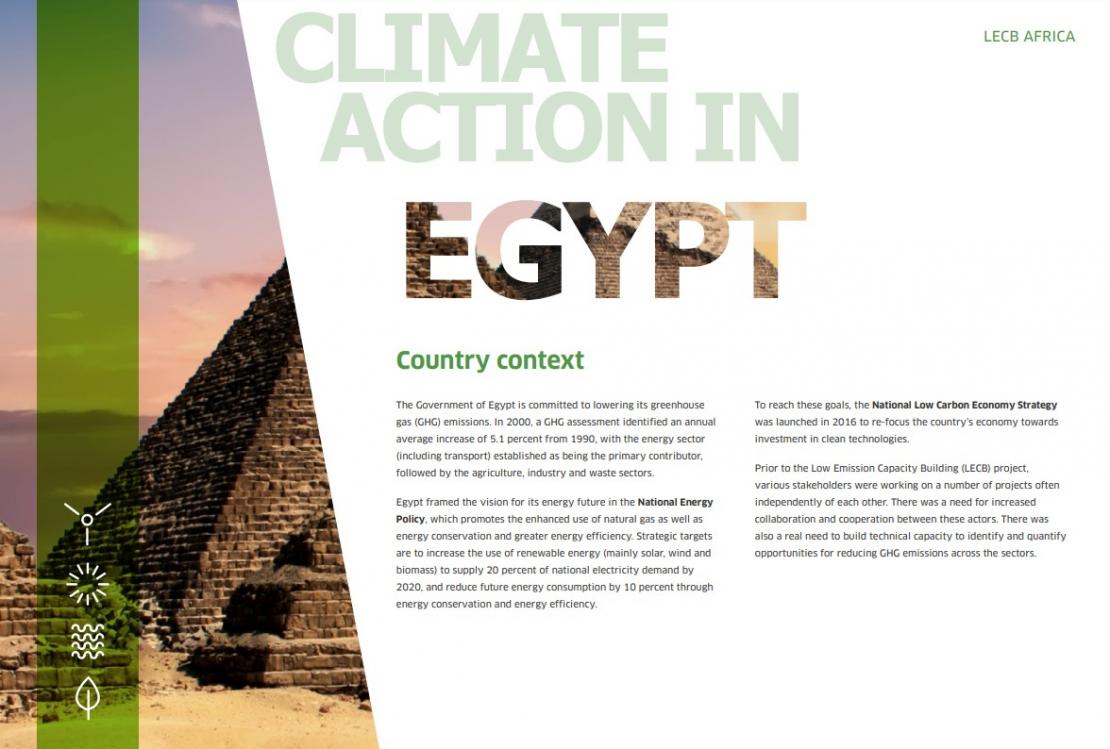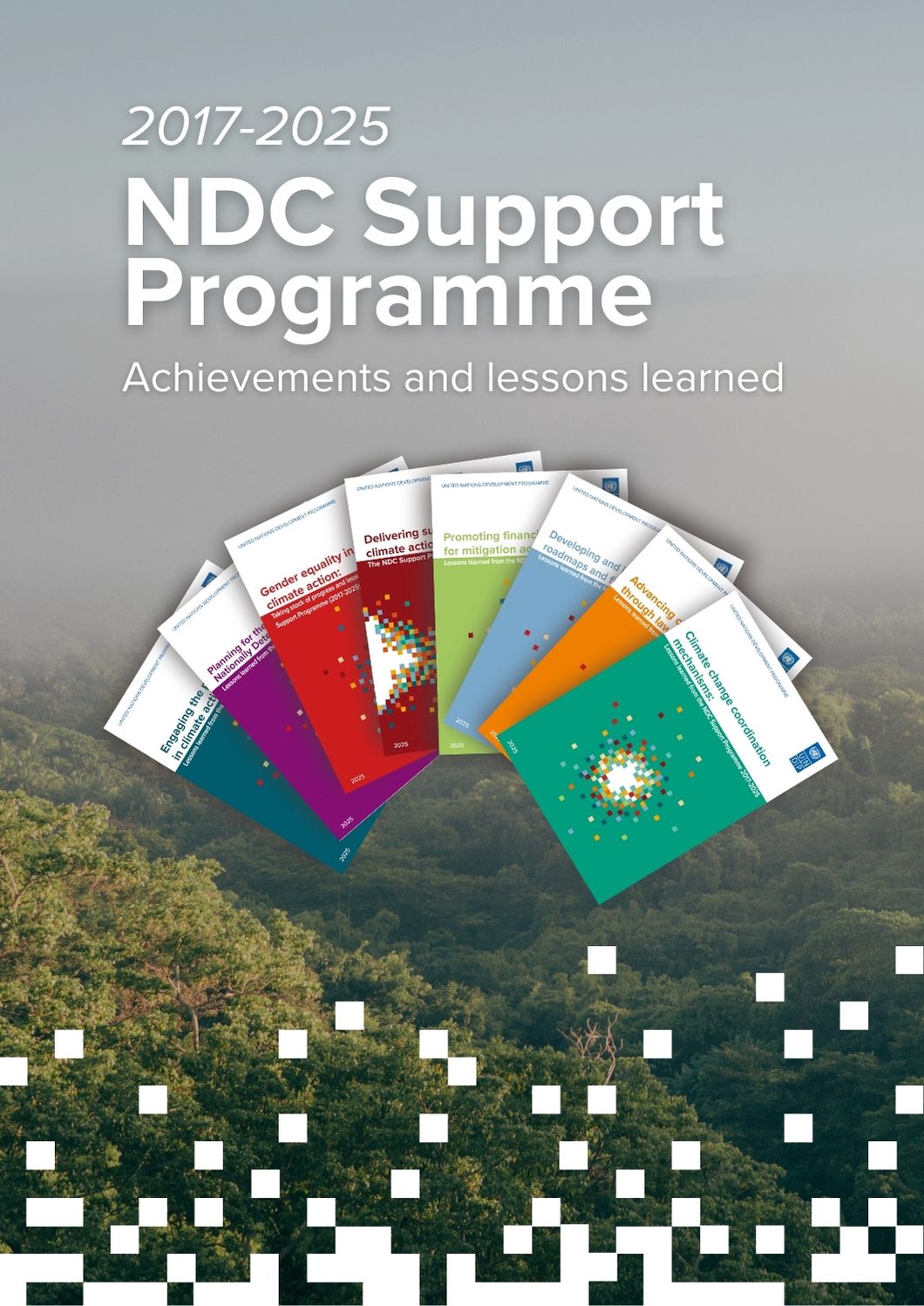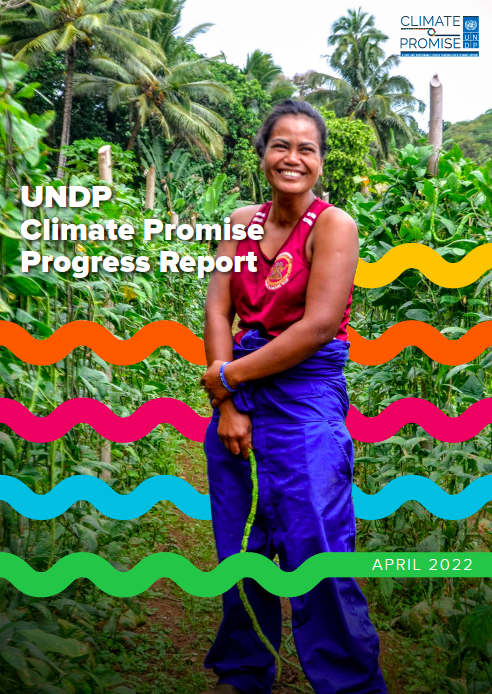LECB Programme Impact and Results: Egypt

Egypt framed the vision for its energy future in the National Energy Policy, which promotes the enhanced use of natural gas as well as energy conservation and greater energy efficiency. Strategic targets are to increase the use of renewable energy (mainly solar, wind and biomass) to supply 20 percent of national electricity demand by 2020, and reduce future energy consumption by 10 percent through energy conservation and energy efficiency. To reach these goals, the National Low Carbon Economy Strategy was launched in 2016 to re-focus the country’s economy towards investment in clean technologies.
Prior to the Low Emission Capacity Building (LECB) project, various stakeholders were working on a number of projects often independently of each other. There was a need for increased collaboration and cooperation between these actors. There was also a real need to build technical capacity to identify and quantify opportunities for reducing GHG emissions across the sectors.


